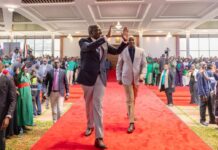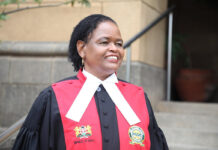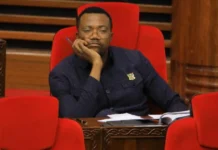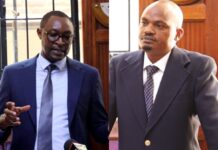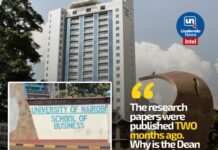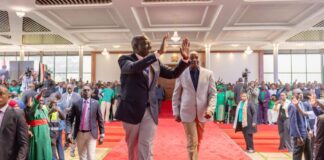
Mwai Kibaki was Kenya’s third president and arguably one of Kenya’s most loved leaders.
Not a single day would pass before the eloquent Kibaki was mentioned in the interwebs.
Kibaki was a star student at the London School of Economics, and by his early 30s, he was running Kenya’s Treasury.
Kibaki entered Parliament in 1963 as the MP for the current Makadara — then known as Doonholm, marking the start of an illustrious political career that has spanned half a century and seen him hold positions that many can only dream of.
Kibaki has held positions ranging from Parliamentary Secretary, various ministerial posts, vice president, leader of the official opposition, and finally president.
If his political career were a musical piece, the conductors’ hands would rise steadily as the notes progressed, reaching a crescendo and remaining there.
He didn’t say much, but he was decisive in his actions. He put his wingmen in the right spots and fired the lieutenants he thought were a waste of time.
He was credited with combining technocratic ability with solid liberal social reform instincts to spur the growth of a country in shambles from the Moi regime.
Following his election in 2002, he held a liberation press conference, which was a genuine exchange of ideas.
During this brief, Mwai Kibaki announced that he would fulfill the Free education program within the following week.
Thousands of children led by their parents showed up the following Monday, demanding free education, which was delivered in his term.
Beyond education, Kibaki’s other great reforming instinct was to enlist the help of civil society in the fight against corruption.
He named John Githongo as the permanent secretary of state for governance.
But by then, the Moi regime’s vested interests had stepped in and pushed Githongo out. Kibaki, who was weak and sick, was unable to stand up to them.
With extensive tech and industrial investments, he presided over a tax and spend growth boom that should have propelled Kenya into middle-income status, but was sabotaged by corporate short-term greed and political graft.
He is also credited for launching the Medium-term implementation of the Kenya vision 2030, which has so far seen a boom in infrastructure development, education programs, and advancement in technology.
He will also be remembered for overseeing Kenya’s first independent constitution in 2010.
Kibaki retired in 2013 to his home, where he was rarely seen until the death of his predecessor Daniel Arap Moi.
Email: uzalendonews24@gmail.com to submit your story.
SUBSCRIBE TO OUR YOUTUBE CHANNEL



